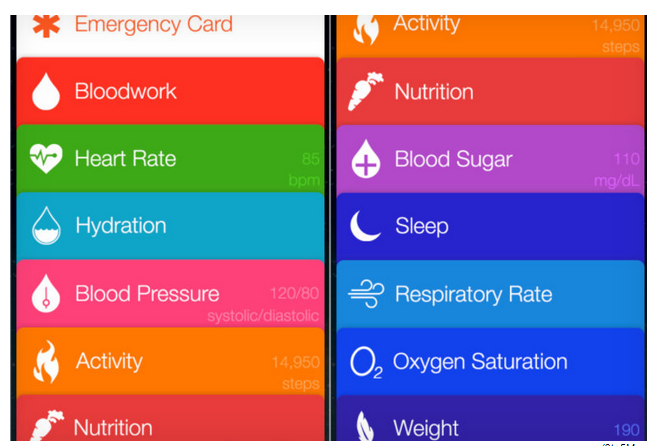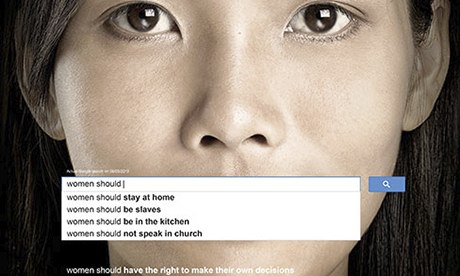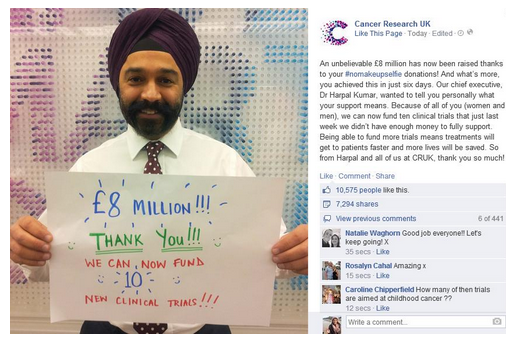Digital Now Report- 31 March
The Now Report is a snapshot of our favourite stuff from the world of digital, emerging tech, and health/consumer trends. With content sourced and written by FleishmanHillard staff, it provides an editorial filter to inspire discussion among your teams, and encourage ideas and innovation.
Want to view this newsletter in PDF format? Click here
Will Apple’s new big idea “Healthbook” transform healthcare?
Is the health and fitness industry the next that Apple looks to reinvent? Rumours are mounting that Apple will be releasing a health app called Healthbook available in the yet to be released iPhone 6. With over 20,000+ health and fitness apps currently available in the App store, one might question why we need another! The answer could be found in the success of other apps, such as Tictrac, or UMotif – services that combine different sources of health information to provide a visual insight into trends.
With Apps now recording anything from sleep to nutrition to exercise to vital signs, there is an opportunity to tie all of this data together to make it more meaningful. Leaked information shows that Healthbook will collect and provide insights into your key health data, including steps taken, calories burned and periods of intense exercise. But it could also collect data about your heart rate, blood sugar and other key metrics. If Apple can encourage partnership between it’s devices and third-party sensors this could be a platform to transform healthcare data and its use. This begs the question, will Apple also release a wearable device to track blood chemistry, movement, sleep etc. Could this be the fabled iWatch which we have heard so much about? Like the music industry before it, could healthcare be next on Apple’s list for transformation.
Read more about healthbook here >>>
Real Google Autocomplete queries used to highlight gender inequality
What happens when you type “women shouldn’t” or “women can’t” into the world’s most powerful search engine? The autocomplete suggestions reveal a lot about society’s search habits.
Google autocomplete is a feature that suggests what your search term might be before you have finished typing your query. It is based on its most frequent searches and the content of web pages. It can be seen, in many ways, to be a neutral reflection of what is on the internet and also society. UN Women, a three year-old entity aimed at achieving gender equality around the world, tapped into this idea to create their latest campaign. The ads feature genuine top-line results, such as “women shouldn’t have rights; women shouldn’t vote; women shouldn’t work.” and in each of four posters, the autocomplete results are placed over the mouth of a woman as if to silence her. Since Google created the feature, autocomplete has become a popular device for social debate. These ads drive home the slightly depressing fact that enough people around the world share these opinions that Google has come to expect them and the opinions in turn become normalised. Below, the UN Women offers what, in an ideal world, should be the autocomplete result — such as “women need to be seen as equal.”
To see all the images click here >>>
No Makeup Selfies Raise Over £1million for Cancer Research in 24 Hours
Social media trend #nomakeupselfie took over Facebook. With more than £8 million in donations what can we learn from this slightly bizarre trend?
Over the last couple of weeks a trend of “no make-up selfies”, in support of cancer awareness, exploded amongst UK Facebook and Twitter users. Users (in particular, women) rapidly began to upload photos of their makeup-less faces after donating to Cancer Research UK and began to nominate other friends to do the same. A subsequent unofficial “No Make Up Selfie For Cancer Awareness” Facebook page has also appeared and quickly gained almost 230,000 likes, suggesting the movement may continue. Although some have criticised the movement as being “narcissism masked as charity”, Cancer Research UK and their donation numbers beg to differ. From Tuesday 18th- Wednesday 19th March they received over £1 million through over 800,000 text message donations and donations have now reached over £8 million. There has been a number of other iterations of the movement such as #cockinasock but none have been able to sustain the momentum. This happy accident raises the question- can this sort of success be replicated or is it just a fluke brought about by a combination of good fortune and timing?
Click here to read Cancer Research UK’s response to the unprecedented donating phenomenon here >>>
We have built our healthcare practice on our ability to translate inspiring ideas into programmes that support your business goals. Get in touch if you’d like to learn how we do that.
Be sure to follow FH UK on Twitter @fleishmanUK and if you’d like to subscribe/unsubscribe to our email distribution list then please contact us here.
Find Out More
-
Platinum CMS Award
March 13, 2024
-
Changing Communications Tack at Mobile World Congress
February 21, 2024






